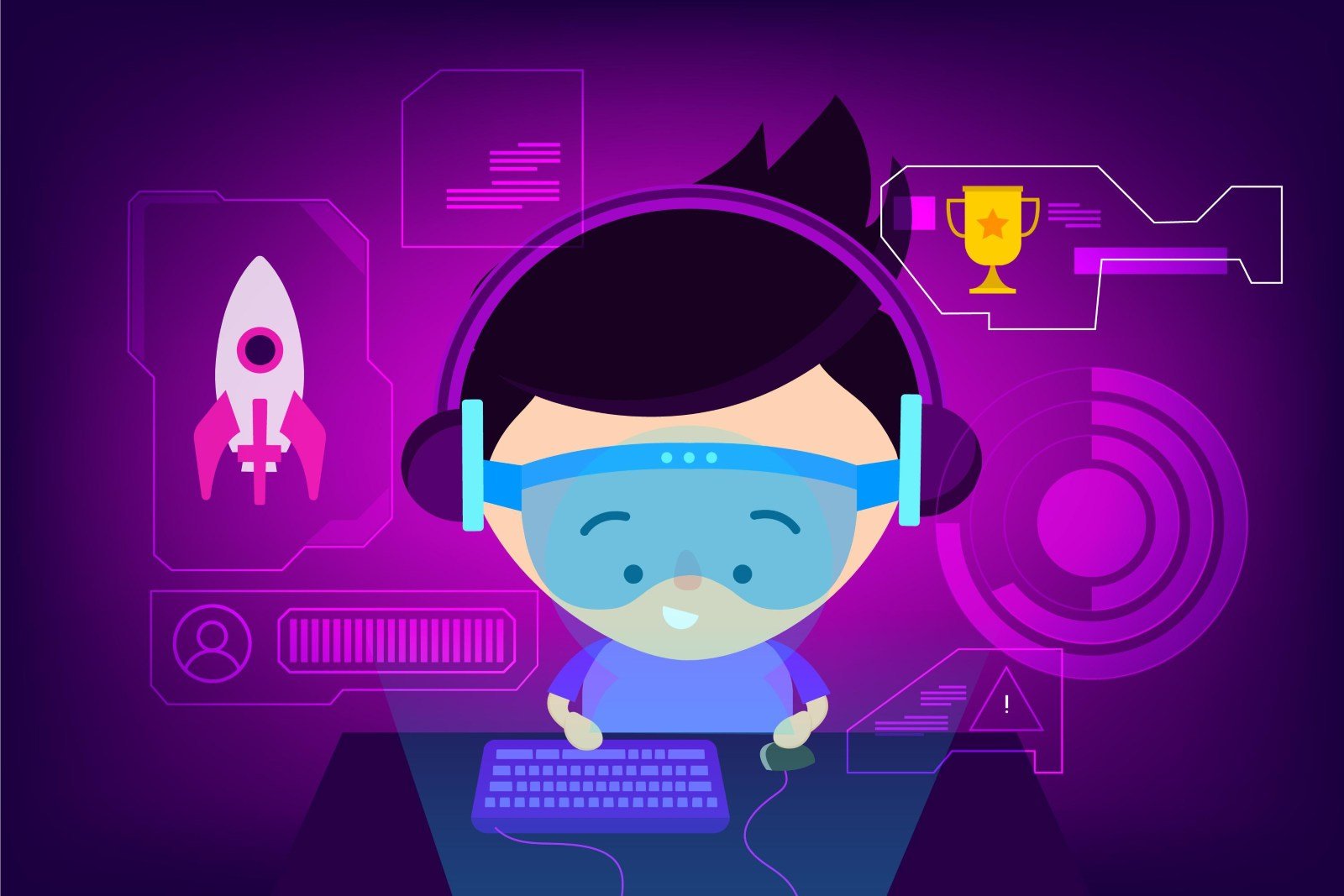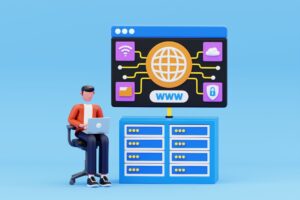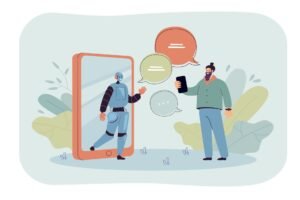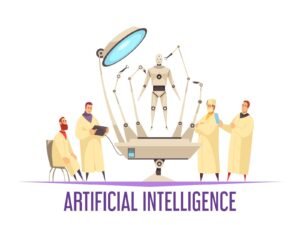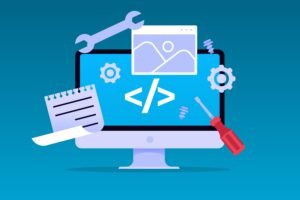In today’s fast-paced world, staying productive can feel like an uphill battle. From managing tasks to balancing priorities, the challenges can often leave us feeling overwhelmed. Enter AI agents — the digital assistants powered by artificial intelligence that are revolutionizing the way we work and organize our lives. These intelligent tools are not just about automation; they provide tailored solutions, insights, and proactive support to help you achieve more in less time.
Lets explores how AI agents enhance personal productivity and why they are becoming indispensable in modern life.
On This Page
Table of Contents
What Are AI Agents and How Do They Work?
AI Agents are intelligent systems designed to perform tasks autonomously or semi-autonomously. They leverage various algorithms and technologies to interpret data, learn from it, and take actions based on predefined rules or learned experiences.
How Do AI Agents Work?
The functionality of AI agents can be broken down into several key processes:
- Data Input: AI agents receive information from their surroundings, which can include sensory data, user inputs, or online data streams.
- Processing: The agents analyze the input using machine learning models to extract meaningful insights.
- Decision Making: Based on the processed data, AI agents determine the best course of action, which can involve a series of if-then logical processes.
- Action Execution: The final step involves the agent executing the chosen action, which could be anything from responding to queries to controlling devices.
Examples of AI Agents
To better illustrate how AI agents function, consider the following examples:
| Type of AI Agent | Functionality |
|---|---|
| Chatbots | Answer customer inquiries and provide support. |
| Virtual Assistants | Manage tasks and schedules automatically. |
| Autonomous Vehicles | Navigate and drive without human intervention. |
AI agents represent a significant advancement in technology, enabling automated systems across various sectors. By understanding their workings and capabilities, we can harness their potential effectively.
Streamlining Daily Tasks with AI Assistance
AI assistance has become an invaluable resource for streamlining daily tasks. From scheduling and setting reminders to managing various responsibilities, AI tools simplify our lives, allowing us to focus on what matters most.
How AI Agents Enhance Task Management
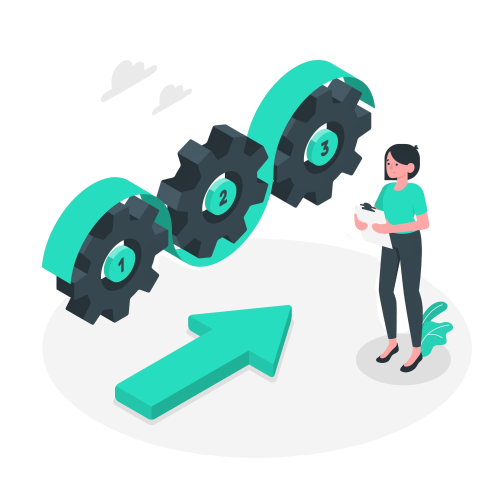
AI agents provide significant benefits in task management. Here are some key features:
- Scheduling appointments automatically, considering all participants’ availability.
- Sending timely reminders for upcoming events to ensure nothing is overlooked.
- Organizing tasks based on priority and deadlines, so you can efficiently manage your workload.
Practical Examples of AI Assistance
Let’s look at some popular AI tools that can help you:
| AI Tool | Functionality |
|---|---|
| Google Assistant | Voice-activated reminders and scheduling. |
| Microsoft To Do | Task management with deadlines and priority settings. |
| Todoist | Smart scheduling and project organization. |
By implementing these tools, individuals can dramatically reduce their workload and enhance productivity.
Let’s take a look at some real-life examples of how AI agents improve task management:
| Scenario | AI Agent Action |
|---|---|
| Prepping for a big meeting | AI aggregates relevant documents and reminders 24 hours before. |
| Daily task list | AI suggests a curated list of tasks based on previous days’ completions. |
| Work-life balance | AI analyzes your schedules and suggests breaks to improve productivity. |
Personalized Productivity Insights
The quest for enhanced productivity is ever-present. Utilizing AI agents to provide personalized productivity insights is a game-changer. These intelligent systems analyze your work habits and offer tailored recommendations to improve your efficiency.
How AI Agents Personalize Recommendations
AI agents gather data from various sources such as calendars, emails, and task lists. By leveraging this information, they can create customized strategies. Here are some methods through which AI enhances productivity:
- Time Management: AI can suggest optimal time slots for focused work.
- Task Prioritization: It helps in identifying urgent tasks based on deadlines.
- Routine Optimization: AI analyzes your daily habits to propose an effective schedule.
Examples of AI-Driven Productivity Tools
Several examples illustrate how AI agents significantly boost productivity:
| Tool | Feature |
|---|---|
| Todoist | Utilizes AI for prioritizing tasks based on user behavior. |
| RescueTime | Tracks time spent on applications and provides productivity reports. |
| Calendly | Automates meeting schedules based on availability and preferences. |
Imagine a professional named Sarah, inundated with daily tasks. She struggles to prioritize them, resulting in missed deadlines and unnecessary stress. To alleviate this, Sarah decides to incorporate AI agents into her workflow.
By utilizing AI productivity tools, Sarah can transform her approach to daily tasks. Here’s how:
- Task Prioritization: The AI agent analyzes Sarah’s workload, deadlines, and personal preferences, generating a prioritized task list.
- Time Management: It suggests optimal time slots for her tasks, taking into consideration breaks and peak productivity periods.
- Automated Reminders: The AI sends alerts to keep her on track, ensuring that deadlines are met without the last-minute rush.
As these examples show, AI agents offer invaluable support in crafting personalized approaches to productivity. Embracing these technological advancements can lead to more effective work habits and, ultimately, professional success.
Time Management Made Smarter
Effective time management is essential in today’s fast-paced world. With the advent of AI agents, managing your schedule can become significantly more efficient. These intelligent systems can analyze your habits, suggest changes, and automate routine tasks, allowing you to focus on what truly matters.
How AI Agents Optimize Your Schedule
AI agents use various tools and techniques to streamline your time management practices. Here are some practical ways they work:
- Personalized Scheduling: AI agents learn from your preferences and propose optimal meeting times.
- Task Prioritization: They assess the urgency and importance of tasks, helping you prioritize effectively.
- Automated Reminders: AI systems can send reminders for appointments and deadlines, ensuring you never miss a beat.
Examples of AI Tools for Time Management
Implementing AI in time management is simpler than ever with the various tools available. Here are some popular examples:
| Tool Name | Description | Key Features |
|---|---|---|
| Todoist | A task management app that incorporates AI for optimal task scheduling. | Priority levels, reminders, and project organization. |
| Calendly | A scheduling tool that uses AI to find the best meeting times. | Integrates with calendars, eliminates back-and-forth emails. |
Harnessing AI for Smart Time Management
Integrating AI agents into your time management routine can provide significant relief. Here’s a step-by-step process to implement AI-driven solutions:
- Step 1: Assess Current Workflow – Take stock of your daily tasks and their respective deadlines.
- Step 2: Select an AI Agent – Choose an AI tool that offers scheduling, reminders, and task prioritization features.
- Step 3: Input Tasks into the AI System – Enter all tasks, meetings, and deadlines into the AI agent. Example structure can be:
Task Deadline Priority Project A Friday High Team Meeting Monday Medium - Step 4: Let AI Suggest Prioritization – Utilize the AI’s algorithm to analyze your tasks and recommend a prioritized list.
- Step 5: Adjust Based on Progress – Regularly review the suggested plans to ensure alignment with changing priorities.
Evaluating the Outcomes
After implementing the AI agent, ensure to evaluate your productivity levels. The AI should help you identify areas for improvement. Embracing AI technology for time management can lead to a more structured and productive workflow.
Collaboration and Communication Simplified
In recent years, AI agents have emerged as transformative tools in enhancing team productivity through effective communication. By simplifying tasks that typically require extensive human involvement, these agents allow teams to focus on what truly matters – collaboration and innovation.
The lack of clear communication can lead to misunderstandings, missed deadlines, and reduced productivity.
For instance, consider a marketing team attempting to launch a campaign. Team members often rely on emails and chat applications, resulting in fragmented conversations and unclear assignments.
How AI Can Transform Communication
Implementing AI-powered tools can significantly enhance team productivity by providing smart communication solutions. These tools automate scheduling, track project progress, and streamline conversations. Below are some ways AI can improve team communication:
- Automated Summaries: AI can generate summaries of meetings, ensuring that all team members are on the same page.
- Smart Task Assignments: AI systems can assign tasks based on individual workloads and expertise, optimizing resource usage.
- Real-time Translation: For global teams, AI-powered translation tools enable seamless communication across language barriers.
The Role of AI Agents
AI agents streamline communication by automating routine processes and providing insights that promote better decision-making. Here are a few key benefits:
- Real-Time Updates: AI tools can provide instant notifications and updates about ongoing projects, ensuring that every team member stays informed.
- Data Management: AI agents can efficiently manage and analyze vast amounts of data, presenting it in easy-to-understand formats such as tables and charts.
- Reducing Miscommunication: By facilitating clear information exchange, AI tools help minimize misunderstandings that can lead to confusion and delays.
Examples of AI in Action
Consider the use of AI-powered chatbots during project management:
| Scenario | AI Agent Response |
|---|---|
| Team member requests project status | AI provides a summary of progress and outstanding tasks. |
| New task assignment | AI notifies relevant team members and updates the project dashboard. |
By integrating such technologies, teams experience improved communication efficiency, which drives overall productivity.
AI Agents for Learning and Skill Development
Artificial Intelligence (AI) has dramatically shifted paradigms in various sectors, especially in learning and skill development. AI agents serve as personalized assistants, guiding learners through tailored educational experiences. They utilize data analytics to assess individual learning styles and adapt content accordingly.
How AI Agents Enhance Learning
AI agents offer innovative methods to facilitate education and skills acquisition through the following:
- Personalized Learning: AI can analyze user behavior to customize educational content, making it more relevant.
- Interactive Learning: Tools like chatbots provide instant feedback, promoting active participation from learners.
- Resource Accessibility: AI agents curate a variety of resources (videos, articles) tailored to specific skills.
Examples of AI Agents in Skill Development
Several platforms utilize AI effectively for learning. Here are some notable examples:
| Platform | Description |
|---|---|
| Coursera | Offers personalized course recommendations based on user interests and prior learning. |
| Duolingo | Utilizes AI to create individualized learning paths for language acquisition. |
AI agents fundamentally enhance learning and skill development by providing tailored educational experiences. By integrating machine learning technology, these tools can assist learners in staying updated and mastering new competencies with ease.
Reducing Mental Load with AI Support
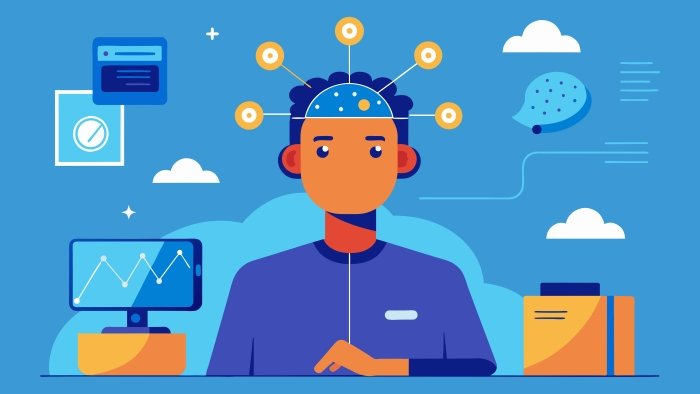
The term mental load refers to the cognitive burden of managing various responsibilities in our daily lives. This burden can lead to stress and burnout, making it important to find effective ways to alleviate this pressure.
The Role of AI in Daily Tasks
Artificial intelligence offers a unique avenue to reduce this mental load by automating repetitive or routine tasks. By embracing AI tools, individuals can enjoy significant benefits, including:
- Time Savings: AI can handle scheduling, reminders, and even data entry, freeing up valuable time.
- Improved Organization: AI applications can help categorize information and streamline processes, making it easier to manage tasks.
- Reduction of Stress: Offloading these responsibilities allows individuals to focus on more meaningful activities, leading to a healthier mental state.
Examples of AI Tools to Reduce Mental Load
There are several AI tools available that can help reduce the cognitive strain of everyday responsibilities. Consider the following:
| AI Tool | Functionality |
|---|---|
| Calendly | Automates scheduling and meeting coordination. |
| Trello | Organizes tasks visually, enhancing usability. |
| Text Blaze | Creates templates for frequently typed responses. |
Imagine a busy professional named Alex, who struggles to find time for personal interests due to a constant backlog of household chores. Here’s how offloading tasks to an AI agent can help:
Step-by-Step Solution
- Identify Routine Tasks: Alex makes a list of daily chores such as grocery shopping, meal planning, and scheduling appointments.
- Explore AI Options: Research AI agents or applications that specialize in completing these tasks (e.g., grocery delivery apps).
- Set Up the AI Agent: Alex downloads and configures the chosen AI assistant, setting it up to perform defined tasks with ease.
- Monitor Performance: Initially, Alex reviews the outputs to ensure accuracy but quickly finds that the AI perfectly handles the responsibilities.
- Evaluate the Benefits: Over time, Alex notices reduced stress levels and more free time for family or hobbies.
Reducing mental load through AI support can vastly improve one’s quality of life. By harnessing these technologies, individuals can offload routine tasks, leading to a more organized and less stressful life.
Intelligent Automation: The Future of AI agents in Personal Productivity
As technology advances, the role of AI agents in personal productivity grows increasingly prominent. These intelligent systems are designed to streamline tasks, making our lives more manageable. The rise of AI-driven productivity tools signifies a shift in how we approach daily responsibilities and long-term goals.
Emerging Trends in AI-Driven Productivity Tools
Several trends are shaping the future of AI agents in productivity. Here are a few noteworthy innovations:
- Natural Language Processing: AI agents can now understand and generate human language, allowing for seamless communication between users and devices.
- Task Automation: Routine tasks such as scheduling meetings and sending reminders can be automated, freeing up valuable time for users.
- Personalized User Experiences: AI tools are becoming adept at learning user preferences, augmenting productivity through tailored suggestions.
Practical Examples of AI Agents in Personal Productivity
The implementation of AI agents is becoming increasingly practical. Here are some examples of how they enhance productivity:
| AI Tool | Function | Benefit |
|---|---|---|
| Virtual Assistants (e.g., Siri, Google Assistant) | Voice-activated task management | Hands-free operation saves time |
| AI Scheduling Apps (e.g., Calendly) | Automating scheduling processes | Reduces back-and-forth emails |
| Project Management Tools (e.g., Trello with AI plugins) | Prioritizing tasks and deadlines | Increases team efficiency |
The future of AI agents in personal productivity promises to revolutionize how we work and live. As these tools continue to evolve, they will inevitably change the landscape of productivity forever.
Resolution
AI agents are not just a technological trend; they are transforming how we approach work and personal goals. By automating routine tasks, offering intelligent insights, and enhancing decision-making, they allow us to focus on what truly matters. As these tools continue to evolve, their potential to empower individuals will only grow, making them an integral part of a productive and balanced lifestyle. Embrace AI agents, and unlock a world of possibilities for achieving more with ease and efficiency.
FAQs
What are AI agents, and how do they improve personal productivity?
AI agents are software systems powered by artificial intelligence designed to assist with tasks, provide insights, and automate processes. They improve personal productivity by managing schedules, organizing tasks, and offering smart recommendations tailored to your habits and preferences.
Can AI agents help with time management and task prioritization?
Yes, AI agents can analyze your tasks, deadlines, and habits to suggest optimal schedules and priorities. They can also send reminders, set goals, and even reschedule tasks if priorities shift, ensuring you stay on track.
Which industries benefit most from AI-powered productivity tools?
Almost every industry benefits from AI tools, but the most notable ones include technology, finance, healthcare, education, and marketing. Professionals in these fields use AI agents for data analysis, scheduling, communication, and workflow optimization.
Are there free AI agents available for boosting personal productivity?
Yes, several free AI tools and assistants like Google Assistant, Microsoft To Do, and Notion offer features to improve personal productivity. While free versions have limitations, they are often sufficient for basic productivity needs.
How do AI agents reduce mental stress while improving efficiency?
AI agents take over repetitive and mundane tasks, such as email sorting, reminders, and simple data analysis. This allows users to focus on more critical activities, reducing mental clutter and stress associated with multitasking.
What are the best AI tools for freelancers to enhance their workflow?
Freelancers can benefit from tools like Trello for task management, Grammarly for writing assistance, Clockify for time tracking, and ChatGPT for generating ideas or content. These tools streamline workflows and save valuable time.
Can AI agents learn and adapt to my working style?
Yes, many AI agents use machine learning to understand your habits and preferences over time. They can adapt to your working style, providing personalized suggestions and automating tasks in a way that aligns with your routine.
Is it safe to use AI agents for managing personal tasks?
Most AI agents are designed with robust security measures, but it’s essential to choose reputable tools and ensure your data is stored securely. Always check privacy policies and avoid sharing sensitive information unnecessarily.
How do AI agents support collaboration in remote work settings?
AI agents facilitate collaboration by managing shared calendars, tracking project progress, automating meeting notes, and streamlining communication. Tools like Slack, Zoom AI assistants, and Asana with AI features are popular in remote work.

